Inaugural European Writing Centers Association Summer Institute 2019
Originally published in the SEPTEMBER 18, 2019 issue of SCHREIBZENTRUM VIADRINA
Writing centers are popping up worldwide. As more and more institutions of higher education see the need to support writers, writing and writing to learn, they are opening writing centers. However, those tasked with trying to establish writing centers, most often have to learn their business by doing and in relative isolation.
To provide professionals and academics within Europe who are seeking to develop writing centers a sustained opportunity for professional development, the European Writing Centers Association offered its first Summer Institute August 19th-23rd at European University Viadrina in Frankfurt (Oder) in Germany, directly at the German-Polish border. Thirty participants from 16 different countries participated. They were invited and accompanied by five experienced Writing Center leaders from Germany, Ireland, and the USA.

Because a central aspect of writing center work is the philosophy of collaborative learning, the Summer Institute was designed to be a truly interactive and participatory learning experience. All topics were delivered to allow all participants to share knowledge and experiences with each other. Together with their leaders, they enhanced their understanding of the following topics:
. Peer writing tutor education
. Working with faculty and administration
. Demonstrating impact: Writing center assessment and more
. The Writing Center budget
. Grant writing for writing center projects
. Possible exchange programs (e.g. Erasmus)
. Working with multilingual students
. Writing center research and publication
. Writing center sustainability
Participants also had ample time to network and to socialize as they walked together to our lodgings in a student hotel across the lovely Oder River that marks the border between Germany and Poland. They shared snacks from their home countries during our daily coffee breaks and spent time each day in small mentoring groups.
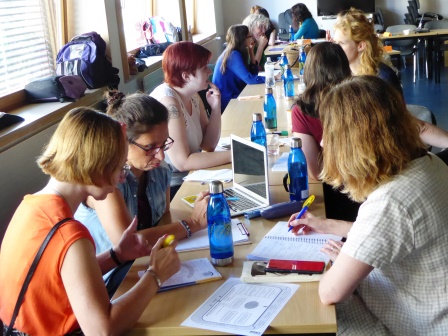
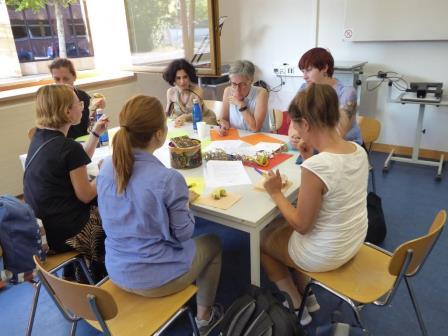
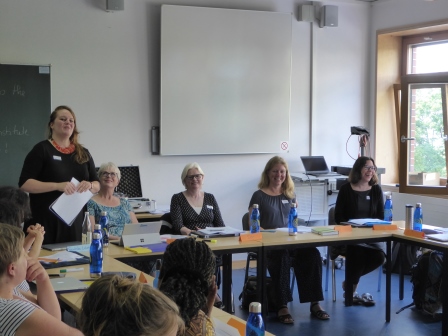
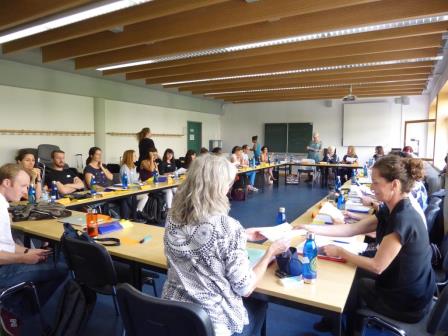
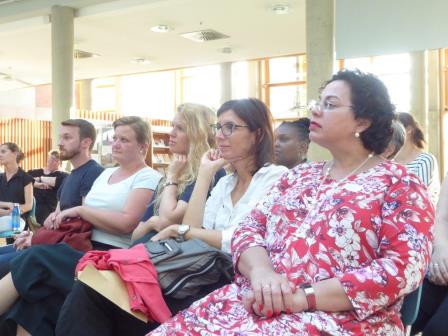
To celebrate our hard work at the closing of the Institute, participants created and staged writing circus characters in a Writers‘ Circus, “a very creative and great way to end our time together”, as a participant expressed it.
The feedback of participants was overwhelmingly positive and many expressed how they were looking forward not only to going back to their writing center work, but also to continuing the networking informally and through future summer institutes. The Summer Institute, one participant summarized, “showed me the incredible connections you make with people from all around the world, because we have that one thing in common: The love for writing – and writing consultations and centers!”










